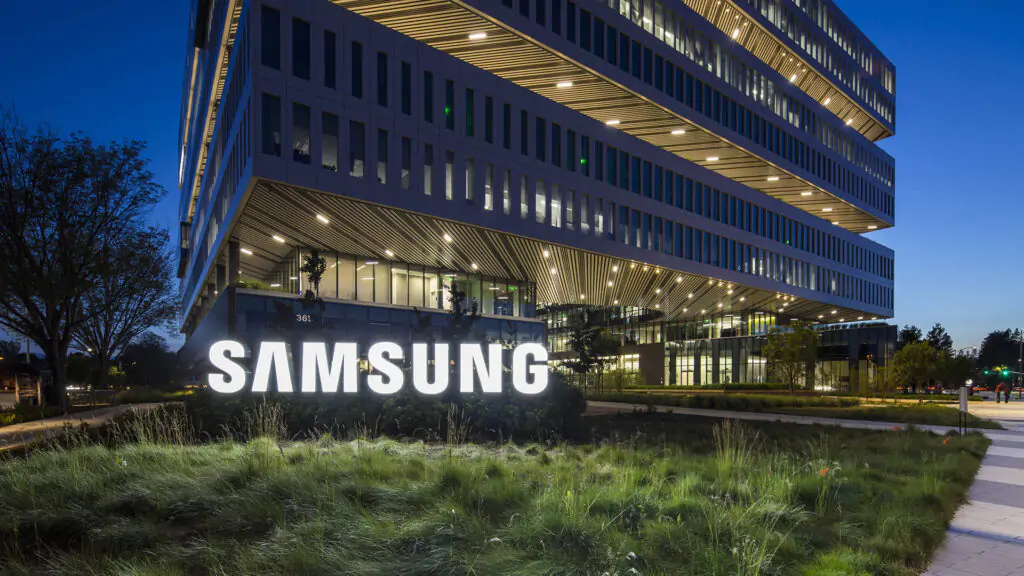Samsung Chipmaker gives Nvidia hints about possible HBM supply.
In the third quarter of this year, Samsung Electronics’ operating profit from its semiconductor sector was 3.86 trillion won ($2.8 billion), less than the 4 trillion won analysts had predicted.

The company claimed one-time expenses in its Device Solutions (DS) division, which makes chips, for its declining profitability. The market, however, thinks that the division’s non-memory area was more accountable for the billions of dollars in losses that were accumulated, which had a detrimental effect on overall profitability.
The company presented a positive assessment of its AI-specific high-bandwidth memory (HBM) chip companies in spite of the dismal results, suggesting that its cutting-edge HBM3e chips are now nearing the end of their certification process by Nvidia.
In line with its earlier-this-month projection, Samsung Electronics announced revenue of 79.1 trillion won and an operating profit of 9.18 trillion won for the July–September period during an earnings teleconference on Thursday. Just three months after the company reported 10.44 trillion won for the second quarter, the operating profit dropped below the 10 trillion won threshold, despite revenue rising 17.35% year over year to record a new high.
Sluggish growth in the DS business, which recorded 29.27 trillion won in revenue and an operating profit of 3.86 trillion won, was a major factor in the lower-than-expected result. Even though these numbers were better than those from the previous year, when the global semiconductor sector was in decline, they still failed to meet analysts’ expectations when the earnings were announced.
Sluggish growth in the DS company, which recorded 29.27 trillion won in revenue and an operating profit of 3.86 trillion won, was a major factor in the lower-than-expected result. Even though these numbers were better than those from the previous year, when the global chip industry was in decline, they were still below analysts’ projections of an operating profit for the division of at least 4 trillion won, which was made during the results forecast.
Samsung clarified that “one-off factors such as reduced inventory valuation gains, allowances for incentives, and foreign exchange rates” were the reason behind the decline in memory chip company profitability. Analysts estimate the expenditures to be around 1 trillion won, however the corporation did not disclose precise figures.
Its non-memory operations, such as foundry and chip design, dealt another blow. The corporation mentioned in passing that such businesses’ performance has suffered because of one-time expenses, but the market believes they have lost between 1 trillion and 2 trillion won.
This also indicates that the company’s memory chip division held steady throughout the third quarter.
The firm clarified on the earnings call that the difference between the actual profit of 9.18 trillion won and the market consensus of 10.4 trillion won for the company’s total operating profit was larger than the one-time expenses paid during the period. It is believed that the memory industry alone generated about 7 trillion won in profit, even after accounting for one-time expenses and losses from non-memory businesses.
The company claimed that sales of high-value products, like HBM, continue to rise in its memory sector.
“We are currently mass-producing and selling 8-layer and 12-layer HBM3e chips, and the revenue from HBM increased by 70% compared to the previous quarter,” stated Kim Jae-joon, executive vice president of Samsung’s DS division. Twelve-layer HBM3e chips, which are the fifth-generation HBM, are anticipated to be the standard for AI processors that are released in the upcoming year.

HBM Rebound
Samsung is said to have trouble passing quality testing for Nvidia’s AI processors, and this has hindered its efforts to boost its supply of HBM3e to Nvidia thus far. Given that the testing schedule went longer than anticipated, the market became more concerned about Samsung’s ability to compete in the HBM space.
The company also hinted at partnering with outside foundries to deliver customised HBM chips, stating that it will be able to design and mass-produce the sixth-generation HBM4 by the second half of next year.
Regarding its foundry business, Samsung stated that it will reduce its spending in this sector and focus on HBM and other cutting-edge memory chips.
In the third quarter, the company’s Device Experience (DX) segment, which deals with consumer electronics and mobile phones, reported operating profit of 3.37 trillion won and revenues of 44.99 trillion won. Samsung stated that the strong figures were a result of steady sales of premium goods, such as the Galaxy S24 smartphone.
